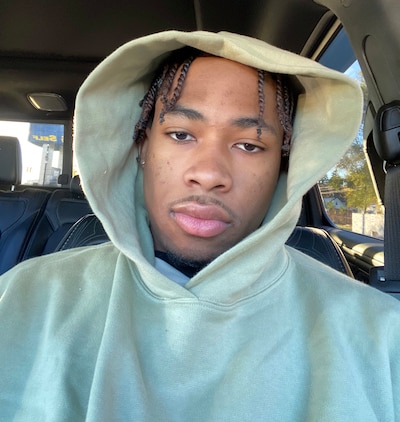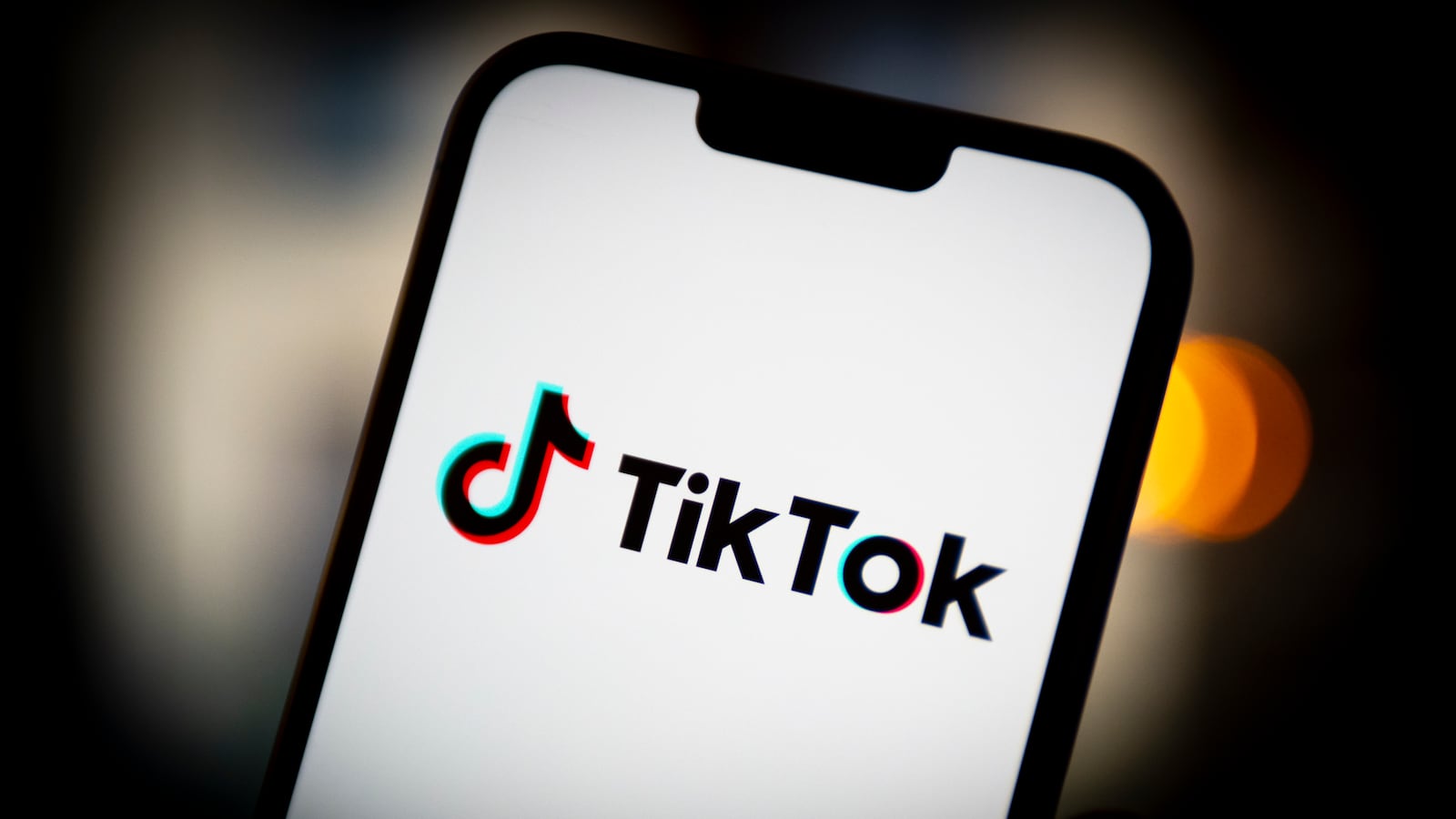It was midnight. I was mindlessly scrolling through the content on my TikTok feed. After watching countless videos of Andrew Tate, a social media star known for his misogynistic worldview, I found myself in an endless loop. As soon as I finished one of his videos, with titles like “Tate Destroys Feminism,” another one would pop up. This was my reality for months.
At the time, I was 12. It was the height of COVID. My Detroit school was closed, classes were online, and social media had become my main form of human interaction. Being stuck at home meant being on screens. Hours I would usually spend hanging out with friends were instead spent playing the video game Fortnite or doomscrolling on TikTok.
That’s how I found my way into the manosphere, a network of online content that promotes chauvinistic and often hateful ideas while borrowing from the language of self-development.

Content creators in the manosphere say they want to help the viewer become what’s known on social media as a “high-value man,” capable of providing for and protecting those around him. That seemingly laudable goal has many unsavory subtexts, but I didn’t see them at first.
As a gullible child, I really believed that I would become a high-value man.
It was easy to watch video after video, not realizing the material was getting darker and darker. One minute I was watching tips for young men to improve their confidence; the next minute, that same creator was explaining that women need to be controlled, LGBTQ+ people don’t deserve rights, and Black people are “snowflakes.” And I believed them.
I had been “red-pilled,” which is a term from the 1999 film “The Matrix” used to describe a person’s awakening to a previously unseen reality. Male supremacists, however, co-opted the phrase to illustrate what happens when they “realize” they are at the impulse of women and feminists. (Some manosphere tenets are, unfortunately, becoming increasingly mainstream.)
I also found myself following the hashtag #TheBoys, which trended on TikTok during the height of COVID lockdowns. Boys roughly between 10 and 15 years old were using this hashtag to highlight their posts that promoted homophobic, misogynistic, and anti-Black ideas. They would say their pronouns were “heaven/normal” and make jokes about sexual abuse. They called the Black Lives Matter movement a joke.
Alone during COVID, with limited real-life academic and social interactions, these videos turned me into a drone — one who senselessly repeated statements that showed I did not understand the severity of sexual assault or respect the LGBTQ+ people and communities of color.
Things started to change over the Thanksgiving holiday break in 2020.
That’s when my older brother — home from Harvard College for the holidays — overheard me casually repeating the things I heard online as I played Fortnite with friends. He decided to confront me. While walking me into the living room to have a conversation, my brother brought up the topic of Andrew Tate and other creators like him. I told him that I found Tate observant and inspiring.
My brother said, “Women are no less than men.”
Then, repeating ideas I heard from Tate and others, I replied, “Girls can’t be independent.”
After hours of back and forth in which we discussed the manosphere’s ideas about women, the LGBTQ+ community, and Black people like my brother and me, I began to yell the popular red-pill mantra “facts over feelings.” It may sound like a rational idea, but these words are often used to justify hateful falsehoods.
“If we’re talking facts,” my brother countered, many of the content creators elevated by the manosphere “are known white supremacists and Neo-Nazis.”
He added, “The people you support don’t support your existence.”
My brother said I had become a “racist talking point.”
He ended the conversation by asking me, “What type of person do you want to be? What type of impact do you want to have?”
Seeing my calm and collected sibling get unusually bothered showed me how worried he was about me.
The impact of our four-hour discussion did not immediately set in. But over the next couple of weeks, I considered my brother’s words and had my answer to his question about impact: I want to have a positive impact on all people I cross paths with.
I realize now, that if I had continued my descent into the manosphere, my ideologies could have morphed into something even worse: I could have become black-pilled, which is like being red-pilled but much more extreme. The black-pill ideology advocates men reject the version of society they’ve “awakened” to — by any means necessary. The rhetoric of eugenics emerges. Men who are deemed “useless” are advised to end their own lives. At worst, these misguided men, who are told their lives are worthless, may commit acts of mass violence.
I’ve come a long way in the past few years. I’m 16 now, and these days, I stand up for ideals my younger self would have scoffed at: women’s rights, LGBTQ+ rights, and racial justice. My work with the student-led nonprofit Diversify Our Narrative and my high school’s Black Student Union are examples of this. At Diversify Our Narrative, we advocate for more inclusive curriculums, including lessons about many marginalized identities like BIPOC and LGBTQ+ people, and an end to racial disparities in schools. Similarly in the Black Student Union, where I am vice president, my fellow students and I speak about Black life and history.
My run-in with the manosphere is hardly unique. Young men are still falling into similar patterns and pipelines. They may be lonely, suffer from low self-esteem, or lack positive male role models and find themselves caught in a loop of toxic content.
If my brother hadn’t walked me back from the brink, I don’t know where I’d be now. I am determined to pay it forward. As I near adulthood, my interactions with those younger than me feel more consequential than ever because I understand the impact one conversation can have.
Bryan Campbell is a junior at Cass Technical High School who loves reading and writing in his free time. He works as a national team member at Diversify Our Narrative and is a 2024-25 Chalkbeat Student Voices Fellow in Detroit. In the future, he hopes to help Detroit through journalism and education.


